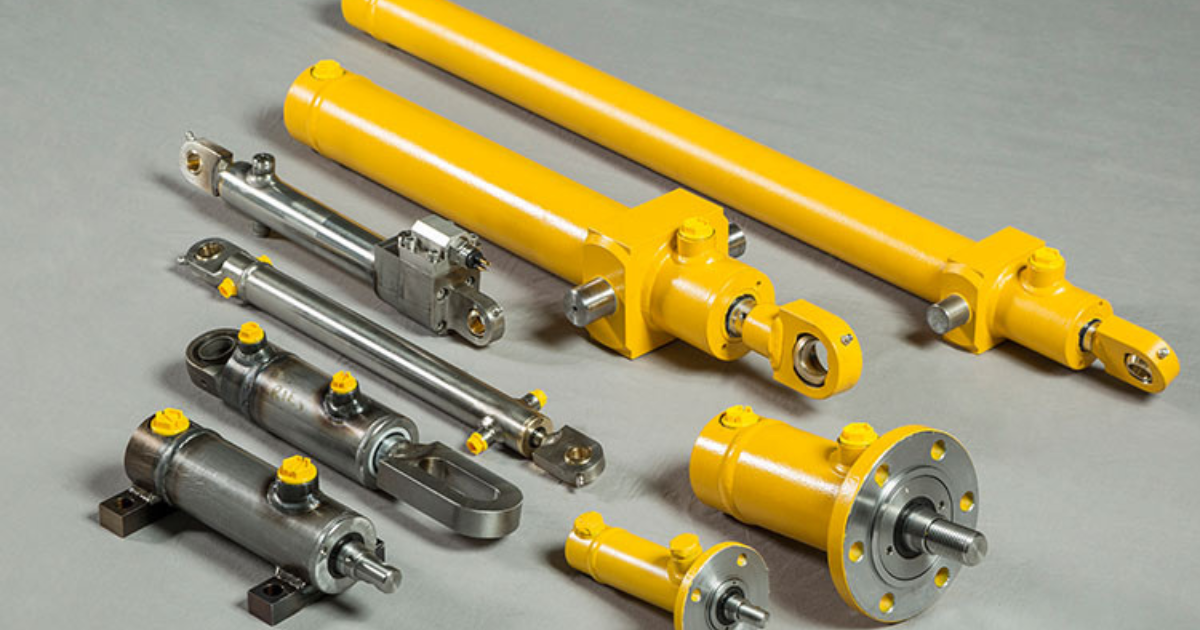Top 7 Warning Signs Your Hydraulic Cylinder Needs Repair (And How to Prevent Costly Downtime)
Hydraulic cylinders are the unsung heroes behind countless industrial operations—from construction equipment to factory machinery. When a Hydraulic Cylinder begins to wear, addressing the issue early can prevent costly repairs and downtime. In this blog, we’ll cover 7 key warning signs that your Hydraulic Cylinder might need repair and how to fix them before things escalate.
1. Fluid Leaks
Fluid leaks around seals or joints are a common sign of a malfunctioning Hydraulic Cylinder. These leaks reduce system pressure and efficiency and can even pose environmental hazards. Promptly addressing leaks will keep your hydraulic system operating smoothly.
2. Unusual Noises
Strange noises such as knocking, banging, or hissing are red flags. These sounds often indicate trapped air, cavitation, or worn components inside the Hydraulic Cylinder. Don’t ignore these noises; they can lead to major breakdowns if not repaired quickly.
3. Sluggish Performance
If your machinery starts losing speed or power, the issue could be within the Hydraulic Cylinder. Reduced performance is often a result of internal wear, seal damage, or fluid leaks. Routine inspections can help you catch these issues before they worsen.
4. Rod Damage
Visible damage to the hydraulic rod—such as rust, dents, or scratches—can compromise the performance of your system. The rod’s surface must be smooth for optimal function, so regular checks are crucial to preventing premature failure.
5. Overheating
Excessive heat can cause severe damage to your Hydraulic Cylinder. Overheating is often due to fluid contamination or overworked components. Regular monitoring of your system’s temperature will help prevent major malfunctions.
6. Slow Cylinder Movement
Slow or erratic movement of the Hydraulic Cylinder could indicate internal wear or fluid contamination. Tackling this issue early will ensure your system continues running efficiently.
7. Misalignment
Misalignment can cause uneven seal wear, friction, and eventual failure. Regular alignment checks will help avoid these problems and extend the life of your Hydraulic Cylinder.
FAQs About Hydraulic Cylinder Maintenance
Q1: How frequently should I inspect my Hydraulic Cylinder?
A: It’s advisable to inspect your Hydraulic Cylinder every 3 to 6 months, depending on the level of usage. Routine checks help detect small problems before they escalate.
Q2: Why do Hydraulic seals fail?
A: Hydraulic seals typically fail due to excessive pressure, heat, or contamination. Regular maintenance and ensuring proper lubrication can extend the life of the seals.
Q3: Is rod damage repairable?
A: Minor damage, like surface scratches, can often be repaired, but more significant issues such as dents or bends usually require a replacement rod to maintain proper function.
Q4: How can I prevent Hydraulic Cylinder overheating?
A: Regularly checking fluid levels, replacing filters, and ensuring your system isn’t overloaded can help prevent overheating. If overheating persists, it’s best to consult a professional.
Q5: What causes fluid leaks in Hydraulic Cylinders?
A: Fluid leaks are often caused by worn seals or excessive pressure within the system. Address leaks early to prevent further damage and maintain system efficiency.
Conclusion
Your Hydraulic Cylinder plays a critical role in keeping your machinery operational. Watching for warning signs like fluid leaks, unusual noises, and sluggish performance will help prevent costly breakdowns and extend the lifespan of your hydraulic system.
At K.S. Hydraulics Engineering Solutions, we specialize in expert maintenance and repair services to ensure your Hydraulic Cylinders perform at their best. Visit us at www.ksindiagroup.com or contact us today to learn more about our comprehensive hydraulic solutions. Let our team keep your equipment running smoothly and efficiently!


